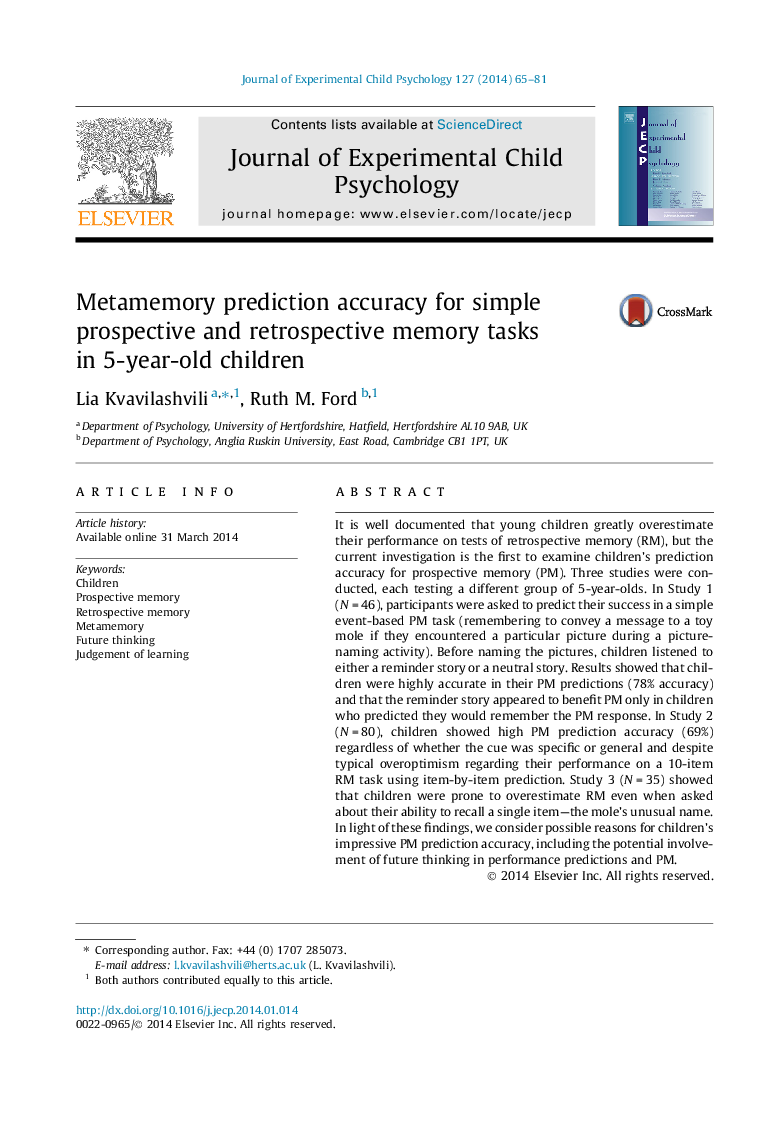| Article ID | Journal | Published Year | Pages | File Type |
|---|---|---|---|---|
| 918055 | Journal of Experimental Child Psychology | 2014 | 17 Pages |
•5-year-olds were asked to predict their prospective- vs. retrospective-memory performance.•Performance prediction accuracy for prospective memory was high.•In contrast, most children greatly overestimated their retrospective memory.•Metamemory appears to develop earlier for prospective- than retrospective-memory.
It is well documented that young children greatly overestimate their performance on tests of retrospective memory (RM), but the current investigation is the first to examine children’s prediction accuracy for prospective memory (PM). Three studies were conducted, each testing a different group of 5-year-olds. In Study 1 (N = 46), participants were asked to predict their success in a simple event-based PM task (remembering to convey a message to a toy mole if they encountered a particular picture during a picture-naming activity). Before naming the pictures, children listened to either a reminder story or a neutral story. Results showed that children were highly accurate in their PM predictions (78% accuracy) and that the reminder story appeared to benefit PM only in children who predicted they would remember the PM response. In Study 2 (N = 80), children showed high PM prediction accuracy (69%) regardless of whether the cue was specific or general and despite typical overoptimism regarding their performance on a 10-item RM task using item-by-item prediction. Study 3 (N = 35) showed that children were prone to overestimate RM even when asked about their ability to recall a single item—the mole’s unusual name. In light of these findings, we consider possible reasons for children’s impressive PM prediction accuracy, including the potential involvement of future thinking in performance predictions and PM.
